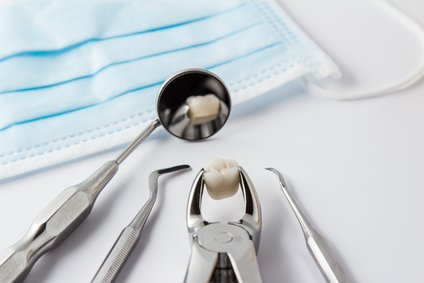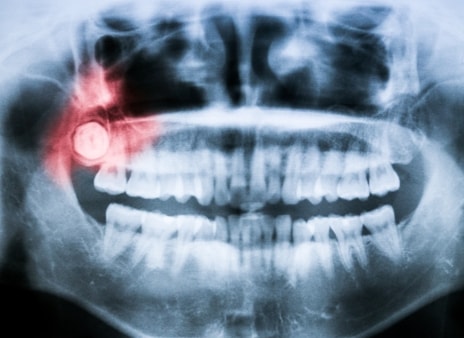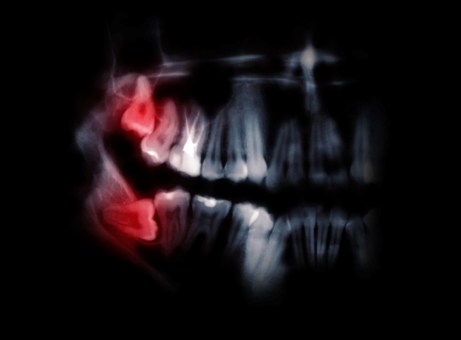
Wisdom teeth often cause pain and discomfort, but ignoring those warning signs can lead to further implications. Please read on for reasons wisdom teeth often need to be removed.
What is a Wisdom Tooth?
Wisdom teeth are the third and final set of molars. They mostly start erupting by late teens into early twenties.

The Unseen Problem
During a regular visit, your dentist might diagnose wisdom tooth/teeth. Though you may not feel any pain, the dentist might recommend the molar or molars be removed. A patient may question, “Why remove something that isn’t causing pain?”
It may be an asset if there is ample room in the jaw for this extra molar to grow. This new development usually causes only mild discomfort as it pushes through the gums. A person can have up to four wisdom teeth. However, if the wisdom tooth/teeth is/are mal-aligned they push against (or “impact”) other teeth in the mouth.

Impacted wisdom teeth are enclosed within the soft tissue and/or jawbone or only partially break through or erupt through the gum. If left alone, an impacted wisdom tooth can lead to periodontal disease, cavities, and inflammation and/or infection in the mouth. A third molar that is not in the correct position for proper growth can be a trap for food and a breeding ground for bacteria. Even partially erupted teeth can leave a gap in the gums for bacteria to hide, making teeth cleaning and healthy oral care difficult. If there is an infection it is usually treated with antibiotics. A referral to an oral surgeon may be suggested.
Ignoring an unseen problem can have painful and costly health consequences. If you’re having problems with, or have questions about a wisdom tooth, call Dr. Mark Rhody Dentistry: (416) 231-4281.
